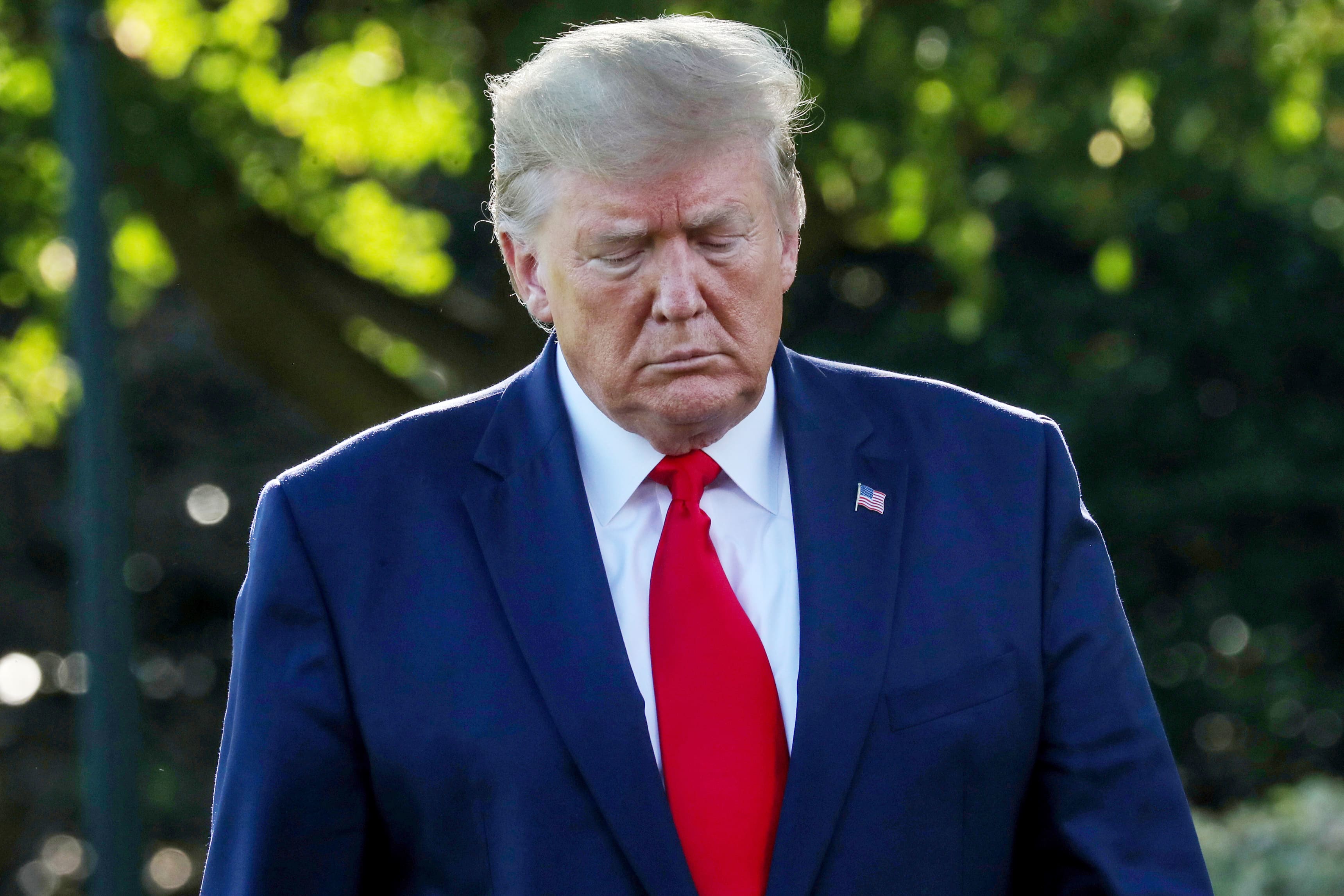President Donald Trump speaks to reporters as he travels to Minnesota from the south lawn of the White House in Washington, USA, on October 10, 2019.
Jonathan Ernst | Reuters
The tax records of former President Donald Trump were handed over to Manhattan district attorney Cyrus Vance Jr. after the Supreme Court’s rejection of the former president’s last effort to keep the documents protected.
A spokesman for Vance, Danny Frost, confirmed that a subpoena was executed on Monday against Trump’s accounting firm, Mazars USA, hours after the country’s highest court rejected Trump’s appeal.
The subpoena required Trump’s personal and corporate records dating back to 2011, including his tax returns. Trump broke the modern precedent by refusing to release his tax returns to the public, even as he mounted two campaigns for the presidency.
A spokesman for the former president did not immediately comment on Thursday. After the court allowed the transfer, Trump promised to “keep fighting” and said Vance was conducting a “fishing expedition”.
The long investigation was closely watched. Early reports suggested that the prosecutor was investigating secret cash payments made on Trump’s behalf to women who claimed to have affairs with the real estate mogul. Trump denied the cases.
More recent lawsuits have indicated that Vance may be investigating Trump and his namesake company, The Trump Organization, for possible bank and insurance fraud. Trump has repeatedly rejected allegations of financial impropriety and accused investigators of partisan motives.
The dispute over Trump’s tax documents came twice to the Supreme Court. Both times, the panel refused to prevent lower court decisions from supporting Vance. In July, court president John Roberts wrote an opinion for a 7-2 court rejecting Trump’s broad argument that he was immune to criminal investigations at the state level while in office.
“In our judicial system, ‘the public has a right to everyone’s evidence’. Since the early days of the Republic, ‘every man’ has included the President of the United States, “said Roberts, who was appointed to court by then President George W. Bush.
After that decision, Trump’s lawyers continued to fight the subpoena, claiming it was overly broad and issued in bad faith, but the lower courts rejected those claims. In October, Trump’s lawyers once again asked the Supreme Court to intervene, but the court wrote in a one-line order on Monday that it would not.
Vance’s possession of Trump’s tax records does not guarantee that the public will ever know what they contain. The records were obtained in connection with a grand jury investigation, and New York state law requires grand jury proceedings to be confidential. It is likely that the only way for the public to view the records is if Vance ultimately makes an accusation and includes parts of the records in the billing documents.
